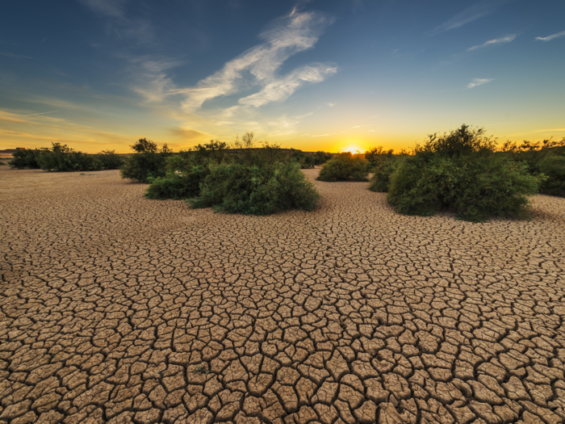El Nino is on the horizon, which can lead to severe heat waves and droughts in many countries, including India, and could take a $3 trillion toll on the global economy, new research published in the journal Science has warned.
El Nino, the band of warm ocean water that spans from South America to Asia triggering far-reaching weather changes, has persistently reduced country-level economic growth, attributing $4.1 trillion and $5.7 trillion in global income losses to the 1982-83 and 1997-98 events, respectively.
The 2023 El Nino is predicted to come at a time when sea-surface temperatures are at an all-time high, according to the research.
"The last major El Nino occurred in 2016 and made that year the hottest in recorded history. Global warming has only intensified in the seven years since. In addition, the world is coming out of an extended La Nina and the two phases can strengthen each other," the researchers wrote.

The US National Oceanic and Atmospheric Administration projects the chances of El Nino setting in by late summer as higher than 80 per cent.
"The deck is potentially stacked for a really big El Nino. Our results suggest that there will likely be a major economic toll that depresses economic growth in tropical countries for potentially up to a decade," said Christopher Callahan, a doctoral candidate at Dartmouth College in the US.
The result could be trillions of dollars in productivity lost globally relative to a world without this El Nino.
Justin Mankin, an assistant professor of geography, and Callahan project that global economic losses for the 21st century will amount to $84 trillion as climate change potentially amplifies the frequency and strength of El Nino -- even if current pledges by world leaders to reduce carbon emissions come to fruition.
The researchers estimate that the El Nino predicted for 2023 alone could hold the global economy back by as much as $3 trillion by 2029.
The findings, Mankin said, highlight a critical and understudied factor shaping the economic toll of global warming -- year-to-year variations in climate conditions.
"Our welfare is affected by our global economy, and our global economy is tied to the climate," Mankin said. "When you ask how costly climate change is, you can start by asking how costly climate variation is."
In the years it strikes, El Nino results in devastating floods, crop-killing droughts, plummeting fish populations, and an uptick in tropical diseases.
Latest Stories
-
Video: Hitz FM’s Rep Ur Jersey ends in style as fans jam to afterparty beats
1 hour -
Hitz FM’s Rep Ur Jersey turns electric as PSG thrashes Inter 5–0 in Champions League showdown
1 hour -
PSG thrash Inter Milan to win first-ever Champions League title
2 hours -
Aviation Social Centre packed as UCL Finale kicks off at Hitz FM’s Rep Ur Jersey
3 hours -
Photos: Fans win big at ‘Rep Ur Jersey’ as sponsors reward game participants with exciting prizes
3 hours -
Australia to increase contribution to UN Peacebuilding Fund to $15m annually – High Commissioner
3 hours -
Dr. Angela Dwamena-Aboagye named MTN Hero of Change for championing women and children’s rights
3 hours -
From Morocco to Botswana – Africans turn to trusted media and experts for climate change information
4 hours -
Mahama announces Labour Export Programme
4 hours -
Prof. Peter Atudiwe Atupare appointed Dean of University of Ghana School of Law
4 hours -
Goldbod is already doing wonders – Mahama praises CEO Sammy Gyamfi
5 hours -
Mahama promises attractive cocoa price in August, pledges 200,000 hectare boost to sector
5 hours -
UHAS Council Chairman Prof. Kodzo Gavua urges graduates to serve with passion, integrity, and innovation
6 hours -
Dr. Charisa Ogbogbo becomes first female professor in Mathematical Sciences at UG
6 hours -
Communication Ministry assures data price cuts as TELCOS prepare to reduce costs soon
7 hours

